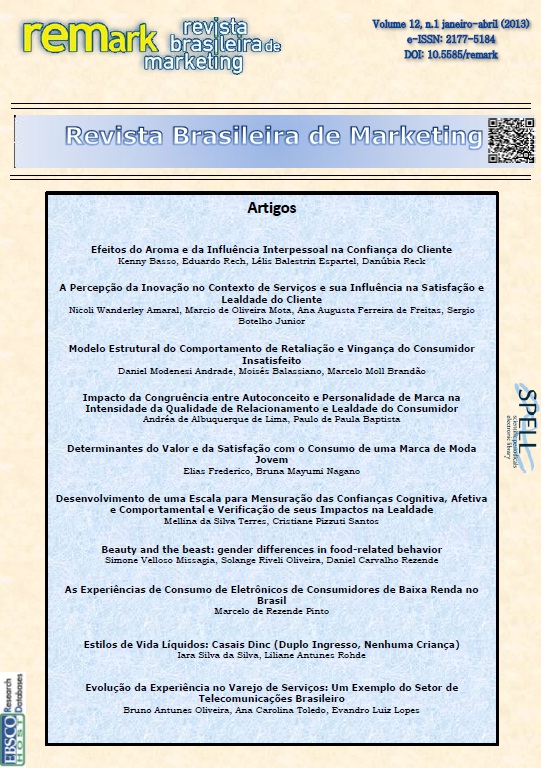The Consumer Electronics Experiences of Low-Income Consumers in Brazil
DOI:
https://doi.org/10.5585/remark.v12i1.2316Keywords:
Consumption Experiences, Consumer Culture Theory, Low-income Consumers, Grounded Theory.Abstract
The general objective of this work was to investigate the interaction of the experiences of consumption of electronics by low-income consumers with the cultural and symbolic system involved in the flow of everyday social life. In reviewing the literature, we focused on the experiential perspective as symbolic consumption and input from consumer culture theory. The research, qualitative and inspired by ethnography, investigated low-income consumers in one of the slums in a Brazilian capital. The empirical data were submitted for content analysis. With the intention of going beyond description, a substantive theory was developed by way of a constructivist grounded theory, as proposed by Strauss and Corbin (2008) and Charmaz (2006). The substantive theory generated revealed a significant relationship between the cultural and symbolic system and the experience of consumption of electronic goods for the low-income consumers investigated. Nevertheless, various other categories emerged in this study that contributed to this phenomenon, including: identification with the neighborhood, violence and drug dealing, social influence, the role of relationships, sharing of objects and spaces, possession, and use of electronic goods. For the elaboration of the theory, the categories of electronics purchases, buying experiences, dilemmas of up-front and installment payment methods, use of credit, low-income consumer perception, and consumption desires were also important.
DOI: 10.5585/remark.v12i1.2316








